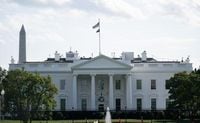In a significant diplomatic development, U.S. Secretary of State Marco Rubio has issued a stark warning regarding the ongoing peace negotiations between Ukraine and Russia. Speaking after a trilateral meeting in Paris on April 18, 2025, Rubio indicated that the United States may withdraw from its mediation role if substantial progress is not achieved within a matter of days. This marks the first collaborative effort among the U.S., Ukraine, and European nations to negotiate peace since Donald Trump assumed the presidency in January 2025.
Rubio emphasized the urgency of the situation, stating, "We will not diminish this patience and these months any longer," highlighting the need for immediate clarity in the negotiations. He expressed concern that without a clear path to a ceasefire, the U.S. would have to shift its focus to other priorities. The Secretary of State's comments reflect growing impatience within the U.S. government regarding the lack of progress in the talks, especially as hostilities continue unabated.
In a bid to facilitate discussions, the U.S. has proposed a new peace framework that includes a controversial condition: Russia's formal recognition of Crimea as part of its territory in exchange for a ceasefire. This proposal is currently under review by both Ukraine and Russia. President Volodymyr Zelenskyy is expected to discuss the terms with his government, while Russia has yet to officially respond.
Rubio's statements were echoed by Trump, who reiterated that the U.S. is unwilling to prolong negotiations if either party is perceived as insincere. Trump remarked, "If someone makes it impossible, we will pull back," underscoring the administration's commitment to a swift resolution to the conflict.
On the same day, the U.S. and Ukraine signed a Memorandum of Understanding (MOU) aimed at establishing a joint investment fund to support Ukraine's economic recovery. This agreement is seen as a crucial step towards rebuilding the war-torn nation, particularly after previous efforts were hampered by political strife earlier in the year. Yulia Svyrydenko, Ukraine's Minister of Economy, expressed optimism about the MOU, stating that it will pave the way for future economic partnerships and ensure access to critical resources.
However, the geopolitical landscape remains tense. Russian forces continue to launch attacks on Ukrainian infrastructure, with reports indicating strikes in 15 areas across Russia. This escalation raises questions about the viability of any peace deal, especially as both sides appear entrenched in their positions.
As the situation evolves, the U.S. must navigate a complex array of diplomatic challenges. Rubio's warning serves as a reminder that the window for a negotiated settlement is narrowing. The Secretary of State's insistence on a quick decision reflects a broader concern within the U.S. administration about the consequences of a prolonged conflict.
Furthermore, the U.S. is looking to bolster Ukraine's economy while simultaneously addressing supply chain issues exacerbated by the war. The recently signed MOU is a strategic move to ensure that Ukraine can recover economically while also securing vital mineral resources for the U.S. and its allies.
In light of these developments, both Ukraine and Russia are urged to reconsider their positions. As Trump aptly noted, the stakes are high, and the U.S. is prepared to take decisive action if the diplomatic process falters.
Looking ahead, the coming days will be critical for the future of U.S.-Ukraine relations and the broader peace efforts in the region. The international community is watching closely, as the potential for a renewed conflict looms large if negotiations fail to yield results. The U.S. administration is clearly signaling its readiness to pivot away from diplomacy, emphasizing that the time for action is now.
As tensions escalate, the world waits to see if the parties involved can come together to find a resolution that not only ends the fighting but also lays the groundwork for a sustainable peace. The implications of these negotiations extend far beyond the immediate conflict, affecting global security and economic stability.







